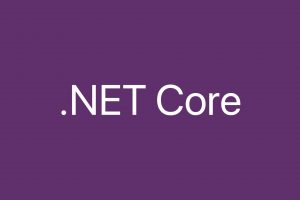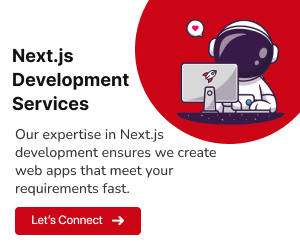In the fast-paced world of web development, React.js has emerged as a dominant force, revolutionizing the way user interfaces are built. Its popularity has surged due to its efficiency, scalability, and flexibility, making it an integral part of numerous web applications. However, with the high demand for React.js expertise comes the challenge of finding and hiring the best talent in the field. This blog aims to guide you through the process of hiring top-tier React.js developers in the USA.
Importance of React.js in Web Development
React.js, developed by Facebook, has gained immense traction for its component-based architecture and ability to create dynamic and interactive user interfaces. Its virtual DOM (Document Object Model) significantly enhances performance by minimizing unnecessary updates, resulting in faster rendering and a smoother user experience. This library’s versatility and robustness have made it a preferred choice for building single-page applications and large-scale projects.
Reusable Components:
React.js’s component-based approach fosters reusable UI elements, enabling efficient development, maintenance, and scalability by composing encapsulated components.Virtual DOM and Performance:
React’s Virtual DOM minimizes unnecessary updates, enhancing performance by selectively rendering only changed components, resulting in faster and smoother user experiences, especially in complex applications.Declarative UI Design:
React’s declarative nature simplifies UI development by allowing developers to specify the desired UI state, streamlining code maintenance and debugging.Strong Ecosystem and Community:
React boasts a robust ecosystem with extensive community support, offering numerous libraries, tools, and resources, empowering developers with solutions and best practices.SEO and Mobile Development:
React supports server-side rendering (SSR) for better SEO and facilitates cross-platform development with React Native, enabling code sharing between web and mobile applications.
Significance of Hiring Top-tier React.js Developers
The success of a React.js project heavily relies on the proficiency of the developers involved. Skilled React.js developers bring expertise in handling state management, routing, component lifecycle, and integrating with other technologies or frameworks. Their ability to write clean, maintainable code and solve complex problems efficiently can significantly impact the project’s quality and success.
Technical Expertise:
Skilled React.js developers possess in-depth knowledge of core concepts like state management, routing, and component lifecycle. Their expertise ensures the efficient handling of complex functionalities, leading to well-structured and high-performing applications.Integration Capabilities:
Experienced developers adeptly integrate React.js with other technologies or frameworks, enhancing the project’s capabilities. Their proficiency in combining React with tools or libraries enables seamless interactions and robust functionalities within the application.Code Quality and Maintenance:
Top-tier React.js developers emphasize writing clean, maintainable code. Their adherence to best practices and coding standards ensures scalability and facilitates easier maintenance and updates as the project evolves.Problem-Solving Skills:
Skilled developers excel in problem-solving, swiftly tackling challenges that arise during development. Their ability to troubleshoot issues, optimize performance, and implement efficient solutions positively impacts the project’s progress and success.Enhanced User Experience:
The expertise of top React.js developers translates into superior user experiences. They create intuitive, interactive interfaces that captivate users, contributing to increased user engagement and satisfaction.
Understanding the Role of a React.js Developer
A React.js developer’s role extends beyond writing code. They collaborate with designers, backend developers, and other stakeholders to ensure seamless integration and optimal user experience. Proficiency in JavaScript, ES6+, JSX syntax, and an understanding of state management libraries like Redux or Context API are key competencies expected from React.js developers.
Collaborative Integration:
React.js developers collaborate with teams to seamlessly integrate front-end components while ensuring adherence to design and functionality standards.Technical Proficiency:
Mastery of JavaScript, ES6+, and JSX syntax is crucial for creating robust React components, forming the foundation of user interface development.Understanding of State Management:
Competency in state management libraries like Redux or Context API enables efficient handling of application state and data flow among components.Component-based Architecture:
React.js developers create reusable components to simplify development, encourage code reusability, and streamline maintenance.Optimization and Performance:
They focus on optimizing performance through techniques like code splitting and lazy loading, enhancing user experience with faster loading times.
Related: Top 20 React.js Technical Questions in Coding Interviews
Crucial Steps for Hiring Top-tier React.js Developers in the USA
This guide outlines essential steps and strategies for businesses seeking to recruit highly skilled React.js developers in the United States. From defining project requirements to evaluating technical expertise and fostering a seamless onboarding process, these ten key steps serve as a comprehensive roadmap for identifying and hiring top-tier React.js talent
1. Understand Your Requirements
Understanding your requirements is the pivotal initial step in the process of hiring the best React.js developers in the USA. This involves a detailed analysis and definition of your project’s scope, goals, and technical needs.
Project Scope:
Begin by comprehensively defining the objectives and scope of your project. Determine whether you need React.js for front-end development, what functionalities you aim to achieve, and whether there are any specific integrations required with other technologies or frameworks.Technical Needs:
Assess the technical aspects crucial for your project’s success. Identify if expertise in particular React.js libraries (e.g., Redux for state management) or proficiency in handling specific challenges like scalability or real-time data handling is necessary.Timeline and Resources:
Evaluate the project timeline and available resources. Determine whether you need React.js developers for a short-term project, a long-term engagement, or on a full-time basis. Understanding these temporal and resource-based constraints will guide your hiring strategy.Team Dynamics:
Consider how the new React.js developer will fit into your existing team. Assess the current team’s skill set and determine the qualities or expertise the new hire should bring to complement and enhance the overall team performance.
2. Evaluate Technical Skills
Apart from React.js proficiency, evaluate a developer’s knowledge of JavaScript fundamentals, including ES6+ features, asynchronous programming, closures, and more. In React, assess their understanding of concepts like component lifecycle methods, hooks, and the virtual DOM. Adeptness in using tools like webpack, Babel, or testing libraries such as Jest or React Testing Library can also be advantageous.
JavaScript Fundamentals:
Assess the developer’s command over JavaScript fundamentals. This includes a deep understanding of ES6+ features like arrow functions, destructuring, spread operators, and promises. Evaluate their grasp on asynchronous programming, closures, and lexical scoping, as these are foundational concepts vital for efficient React.js development.React.js Specific Knowledge:
Dive into the specifics of React.js. Evaluate their understanding of essential concepts such as component lifecycle methods (e.g., componentDidMount, componentDidUpdate), hooks (useState, useEffect), and the virtual DOM. A developer’s familiarity with these core React principles showcases their ability to build efficient and maintainable React applications.Experience with Tools and Libraries:
Look for proficiency in tools and libraries commonly used in React.js development. Developers well-versed in using build tools like webpack and transpilers like Babel demonstrate their ability to streamline the development process and optimize code. Familiarity with testing libraries such as Jest or React Testing Library showcases their commitment to writing robust, testable code.State Management and Routing:
Evaluate their experience with state management solutions like Redux or the Context API in React. Assess their knowledge of implementing efficient state management strategies and handling complex application state. Additionally, inquire about their experience in implementing routing solutions using React Router for navigation within applications.Performance Optimization:
Gauge their understanding of performance optimization techniques in React.js. Look for candidates who can discuss strategies to improve rendering performance, minimize unnecessary re-renders, and optimize component updates through memoization or PureComponent.
3. Check Experience and Portfolio
Review a developer’s portfolio to gain insights into their past projects. Look for diverse experiences, ranging from building single-page applications (SPAs) to complex web applications. Assess if they’ve worked on projects similar to yours, handled scalability issues, optimized performance, or tackled specific challenges that align with your project’s needs.
When reviewing a React.js developer’s experience and portfolio, it’s crucial to delve into various aspects to ensure they align with your project’s requirements
Project Diversity:
Examine the developer’s portfolio to identify a diverse range of projects they have worked on. Look for applications varying in complexity, scale, and functionality. Assess whether they’ve handled projects that align with your anticipated project scope.Relevant Experience:
Seek projects that closely match your requirements. Check if the developer has experience in domains similar to yours or has worked on projects that involve similar functionalities or challenges your project may encounter.Technology Stack and Tools:
Evaluate the technologies and tools used in their previous projects. Assess if they have experience working with the specific stack your project requires, such as backend integrations, databases, or other frameworks used alongside React.js.
Client Testimonials or References:
Seek client testimonials or references whenever available. Direct feedback from previous employers or clients can offer valuable insights into a developer’s work ethic, professionalism, and contributions to the projects they’ve been involved in.
4. Assess Problem-Solving Abilities
Conduct technical assessments or coding challenges to gauge a developer’s problem-solving skills. These assessments can include tasks that mirror real-world scenarios they might encounter in your project. Evaluate their ability to architect solutions, write clean and maintainable code, and debug efficiently.Here’s how you can conduct technical assessments or coding challenges to evaluate their skills
Code Quality and Maintainability:
Evaluate their code quality by reviewing their solutions. Focus on readability, modularity, adherence to coding standards, proper commenting, and the use of design patterns. Assess if their code is maintainable and scalable.Efficient Debugging Skills:
Include tasks that purposely contain bugs or errors and observe how effectively they debug and resolve issues. Assess their debugging approach, utilization of debugging tools, and problem-solving strategies.Performance Optimization:
Include challenges related to optimizing code performance. Assess their ability to identify bottlenecks, improve efficiency, and implement optimizations without sacrificing code readability or functionality.Collaborative Problem-solving:
Consider a pair-programming session or a group exercise to assess their ability to collaborate with others while solving problems. Observe their communication skills, teamwork, and willingness to share ideas and learn from others.Time-bound Assessments:
Set reasonable time limits for assessments to simulate the pressure of meeting project deadlines. This helps in evaluating their ability to deliver solutions within specified time frames without compromising quality.
5. Soft Skills Matter
While technical skills are essential, soft skills like communication, teamwork, adaptability, and a collaborative mindset are equally crucial. A developer who can effectively communicate ideas, collaborate with team members, and adapt to changing project requirements contributes significantly to a project’s success.Here’s an expanded view of the significance of these soft skills
Communication Skills:
Effective communication is vital for a React.js developer to articulate ideas, discuss complex technical concepts, and interact with team members and stakeholders. Clear communication ensures alignment on project goals, requirements, and expectations.Teamwork and Collaboration:
The ability to collaborate harmoniously within a team is crucial. React.js developers often work in multidisciplinary teams involving designers, backend developers, and project managers. A collaborative mindset fosters teamwork, enhances productivity, and leads to innovative problem-solving.Adaptability and Flexibility:
Technology landscapes evolve rapidly. React.js developers need to adapt to new frameworks, tools, or changing project requirements. Being flexible and adaptable allows them to swiftly adjust to modifications and contribute effectively in dynamic work environments.Time Management and Adaptation to Deadlines:
The ability to manage time effectively and work under deadlines is essential in meeting project milestones. React.js developers need to balance tasks, prioritize efficiently, and deliver high-quality work within specified timeframes.Continuous Learning and Growth Mindset:
A growth mindset and a thirst for learning are essential soft skills in a rapidly evolving field like technology. React.js developers who actively seek learning opportunities, stay updated with industry trends, and are open to acquiring new skills enhance their expertise continuously.
6. Utilize Online Platforms and Networks
Tap into online platforms like LinkedIn, GitHub, or specialized developer communities. Engage in discussions, post job listings, and actively seek out React.js professionals. Communities like Reactiflux, Reddit’s r/reactjs, or conferences like React Conf often have active participation from React developers.
LinkedIn:
Utilize LinkedIn, a professional networking platform, to search for React.js developers. Create a detailed job listing or company profile highlighting the opportunities and company culture. Connect with developers, join relevant groups, and participate in discussions to expand your network.GitHub:
GitHub is an excellent platform to explore a developer’s contributions, repositories, and coding style. Search for React.js projects, follow active developers, and review their code contributions to assess their skills and activity level within the React.js community.Job Posting Platforms:
Utilize job posting platforms like Stack Overflow Jobs, Indeed, Glassdoor, or specialized tech job boards to advertise React.js job opportunities. Craft compelling job descriptions highlighting the role, responsibilities, and perks to attract top-tier talent.Tech Conferences and Meetups:
Attend or sponsor tech conferences and meetups related to React.js or web development. Events like React Conf or local meetups provide networking opportunities to meet and engage with React.js developers, fostering connections within the community.Recruitment Platforms and Agencies:
Consider leveraging recruitment platforms like Toptal, Upwork, or agencies specializing in tech talent. These platforms often curate a pool of experienced React.js developers available for contract or full-time positions.Employee Referrals and Networking:
Encourage employee referrals and tap into your existing network. Your current team members or professional connections might know skilled React.js developers who could be a good fit for your organization.
7. Offer Competitive Compensation
Recognize the value of skilled React.js developers by offering competitive compensation packages. Salaries, benefits, bonuses, or opportunities for professional growth and development can attract and retain top-tier talent.
Competitive Salaries:
Research industry standards and regional salary benchmarks for React.js developers. Offer a salary package that reflects the candidate’s experience, skills, and the current market rates for similar positions. Providing a competitive base salary is fundamental in attracting top-tier talent.Comprehensive Benefits:
Beyond salary, offer a comprehensive benefits package. This may include health insurance, retirement plans, paid time off, flexible work arrangements, wellness programs, or other perks that enhance the overall compensation package.Performance-Based Incentives:
Consider performance-based incentives such as bonuses, profit-sharing, or stock options tied to individual or team achievements. Incentives motivate developers to excel in their roles and contribute significantly to the success of projects.Professional Development Opportunities:
Highlight opportunities for professional growth and development. Offer sponsorships for certifications, training programs, workshops, or conferences related to React.js or other relevant technologies. Investing in their continuous learning enhances their skills and benefits the organization.Work Environment and Culture:
Emphasize a positive work environment and company culture. Highlight your organization’s values, employee-centric policies, inclusive workplace practices, and collaborative team dynamics. A healthy work culture can significantly influence a developer’s decision to join and stay with a company.
8. Trial Period and Onboarding
Consider a trial period or a small project to assess the developer’s fit within your team and project dynamics. Provide comprehensive onboarding, access to necessary tools and resources, and mentorship during the initial phase to help them integrate smoothly into your project.
Trial Period:
Consider a probationary or trial period, typically ranging from a few weeks to a couple of months, where the developer works on a small project or specific tasks. This allows both parties to assess compatibility before committing to a long-term arrangement.Defined Objectives and Expectations:
Clearly define the objectives, tasks, and expectations for the trial period. Align these with the actual responsibilities the developer would undertake once fully onboarded. Ensure they have a clear understanding of the project scope and their role within the team.Comprehensive Onboarding:
Offer a comprehensive onboarding process tailored to the developer’s needs. Provide access to necessary tools, resources, documentation, and development environments. Introduce them to the company’s workflows, coding standards, and project management tools.Mentorship and Guidance:
Assign a mentor or a buddy within the team who can guide and support the developer during the initial phase. Encourage regular check-ins and provide opportunities for the developer to ask questions, seek clarification, and integrate into the team culture.Transition to Full-Time Role:
Based on the assessment during the trial period, decide on transitioning the developer to a full-time role if they meet the expectations and align well with the team and project dynamics.
Also Read: How to Integrate Stripe with React
Conclusion
Hiring the best React.js developers in the USA demands a strategic approach that encompasses technical expertise, effective communication, and a thorough understanding of project requirements. By defining your needs, crafting compelling job descriptions, screening candidates rigorously, and evaluating both technical and soft skills, you can identify and onboard top-tier React.js talent to drive your projects towards success. Remember, investing time and effort in the hiring process can yield invaluable returns in the form of a skilled team that propels your web development endeavors to new heights.


























